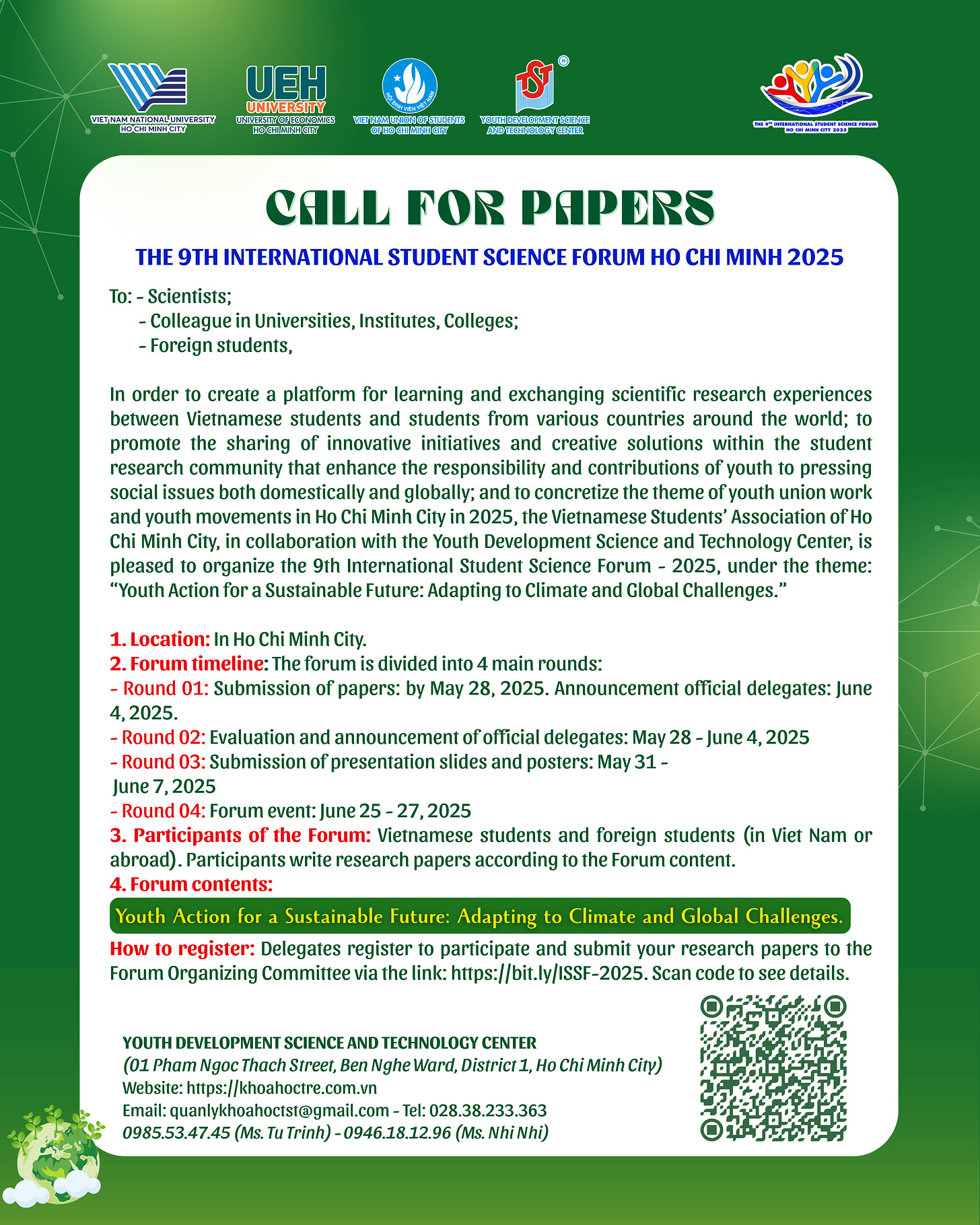Vietnam’s Youth Harness AI and Smart Tech to Battle Climate Change
Science program competition accelerates a rising tide of youth environmentalism in Vietnam
As climate change continues to pose escalating threats to Southeast Asia, Vietnam’s youth are stepping up with innovation and determination to keep pace with the demands and opportunities of the Fourth Industrial Revolution.
From rising sea levels in the Mekong Delta to intensifying heat waves in urban centers like Hanoi and Ho Chi Minh City, the challenges are both urgent and complex. But a new generation of student scientists is embracing cutting-edge technologies—artificial intelligence (AI), smart sensors, and advanced environmental monitoring systems—to build a more resilient future. Their efforts have gained renewed momentum with the launch of the 9th Annual International Student Science Forum (ISSF), which recently issued a call for papers to university and college students across the country. Here’s the link for more information.
This year’s ISSF highlights climate change adaptation as a key theme, signaling a growing recognition of the vital role young researchers play in shaping environmental policy and practice. Student-led projects are increasingly leveraging AI to predict climate-related risks, deploying smart sensors to gather real-time data on water levels, temperature, and pollution, and using machine learning to improve agricultural sustainability. These innovations reflect a broader cultural shift—Vietnam’s youth are not just concerned about climate change; they are actively building tools to fight it.
The forum’s call for papers encourages students to showcase how digital tools can drive environmental resilience, offering a platform for collaboration, cross-border learning, and practical application. As these young minds converge to share insights and breakthroughs, Vietnam is positioning itself as a hub of youth-led climate tech innovation in the region.
The International Student Science Forum (ISSF) is doing more than just inviting scientific papers—it’s catalyzing a movement. With its open call to university and college students across Vietnam, the forum is not only spotlighting how digital technologies like AI, smart sensors, and real-time environmental monitoring can enhance climate resilience but also serving as a launchpad for a broader wave of youth-led environmentalism. This year’s theme encourages students to explore how data-driven tools can solve hyper-local environmental issues while equipping them to scale those solutions regionally and globally.
The initiatives presented at ISSF may well chart the course for how a digitally empowered generation can adapt to—and help mitigate—the most pressing global issue of our time.
By offering a space for collaboration and cross-border exchange, the ISSF builds bridges between student innovators and research communities from around the world. It allows young Vietnamese scientists to share breakthroughs in tech-powered adaptation strategies and to learn from parallel efforts in other climate-vulnerable regions. The forum also emphasizes practical application, urging students not only to theorize solutions but to implement and test them in real-world settings—from sensor networks monitoring flood-prone areas to AI algorithms predicting drought conditions for farmers.
What emerges is not just a scientific symposium but a cultural signal. The ISSF reflects and accelerates a rising tide of youth environmentalism in Vietnam, fuelled by digital literacy, scientific curiosity, and an urgent sense of purpose. The student scientists of today are not merely responding to climate change—they’re reimagining how society understands and addresses it, one innovation at a time.






